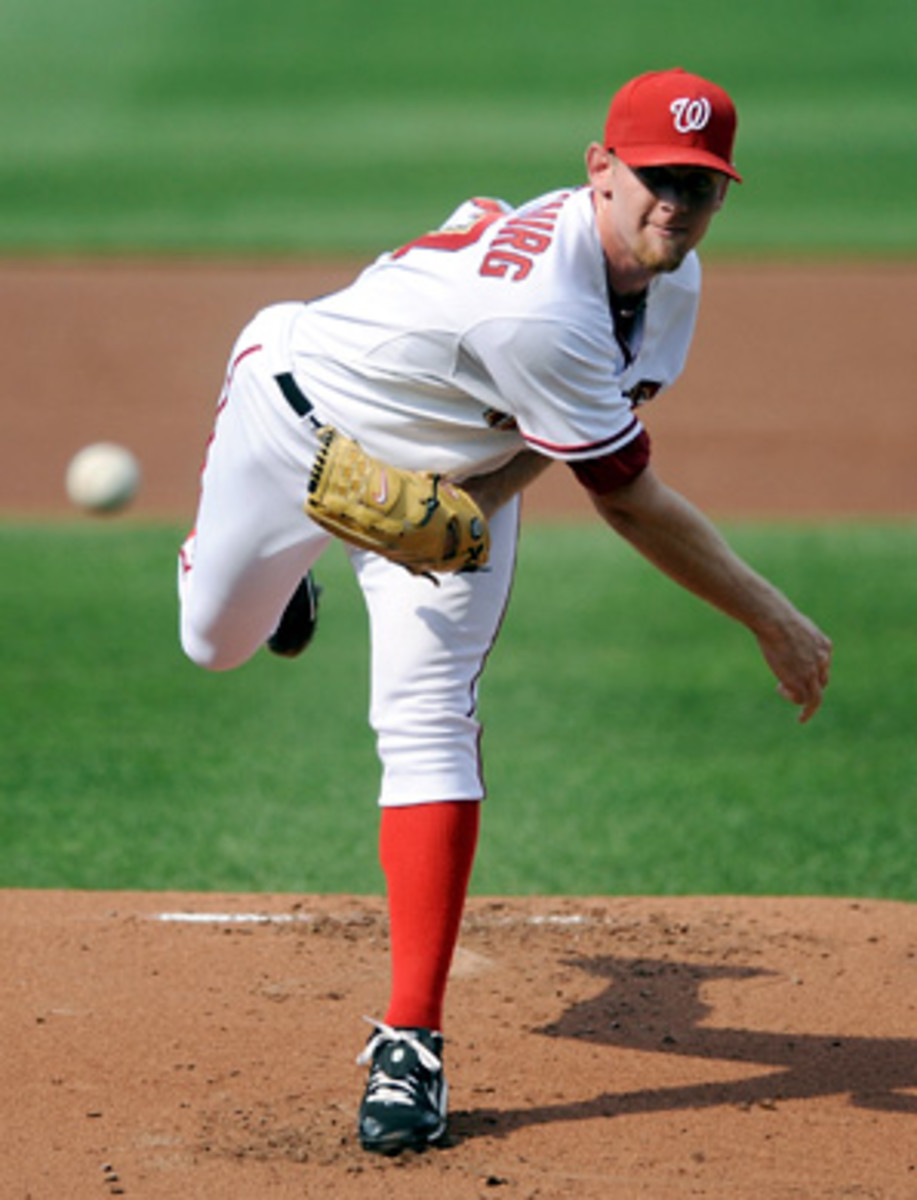Three things we still need to learn about Stephen Strasburg
And so we learned that the rookie phenom can hit as well as pitch, but through four starts against poor-to-middling competition, a few questions still remain:
1. How will he fare against a power-hitting club?
The Royals had nine hits but none went for extra bases. There were so many singles that Rob Dibble quipped on the Mid-Atlantic Sports Network the game was starting to look "like speed dating." At some point Strasburg will start getting tagged by a team with more pop.
To date only three of the 19 hits he's allowed have been for extra bases, and the opposition is a key reason why. The Pirates rank 28th in home runs and 28th in slugging percentage; the Indians rank 25th and 25th in those categories; the White Sox rank eighth and 22nd; and the Royals rank 24th and 15th. Strasburg has faced only two likely All-Star hitters in Chicago's Paul Konerko and Pittsburgh's Andrew McCutcheon, so the jury's out about how he'll fare with multiple threats in each lineup.
2. How will he do with a serious scouting report?
After his brilliant 14-strikeout debut against the Pirates, Strasburg revealed after the game that the Nationals didn't bother giving him a scouting report of the opposing lineup. "They just told me to go out there and enjoy it," he said at the time. Presumably, that component has been slowly incorporated into his preparation, but now it's time to incorporate a serious game plan to go alongside his preternaturally brilliant stuff.
The Royals, for instance, are a team of hackers. Their .280 team batting average leads the majors, but the 55-point difference between their average and their on-base percentage (.335) is the second-worst differential in baseball behind the Astros, indicating Kansas City's impatience at the plate. Their 201 walks entering the game were third-worst among all teams. Four of their nine hits came on one of the first two pitches of the at-bat, three of them on grooved fastballs. Even though he averaged 96.7 mph on his 54 fastballs, a major league hitter can catch up if he knows it's coming. While it's a good thing to start 23 of 28 hitters with a strike, as Strasburg did, he did so by using a fastball on the first pitch 21 of those times, including 11 of the first 12. Using a few more curves or changeups to begin an at-bat -- pitches Strasburg has shown he can reliably throw for strikes -- will keep opponents more off balance.
3. Can he keep it up?
Strasburg has exceeded all expectations. And it's not just that he's setting records like "most strikeouts in a pitcher's first four starts," which, with 41 strikeouts, he eclipsed Herb Score's mark of 40.
What's been most impressive are Strasburg's situational pitching stats. On Wednesday he threw 75 strikes in 95 pitches. He's only allowed three two-strike hits in his four starts. He has yet to walk a hitter leading off an inning. In three of his four outings he didn't walk a single batter. The lone exception came in Cleveland when he had obvious trouble with the condition of the mound and walked five; when he builds a greater sample size, that one may get washed away as a statistical outlier.
The buzz of "Strasmas" as a holiday has waned slightly, as the Nationals drew 31,913 fans, which is about 8,000 more than their average but about 8,000 fewer than a sellout. Then again, it was a hot, humid Wednesday afternoon. And so it remains to be seen: Can Strasburg keep performing well enough to turn every start into a must-see event?





